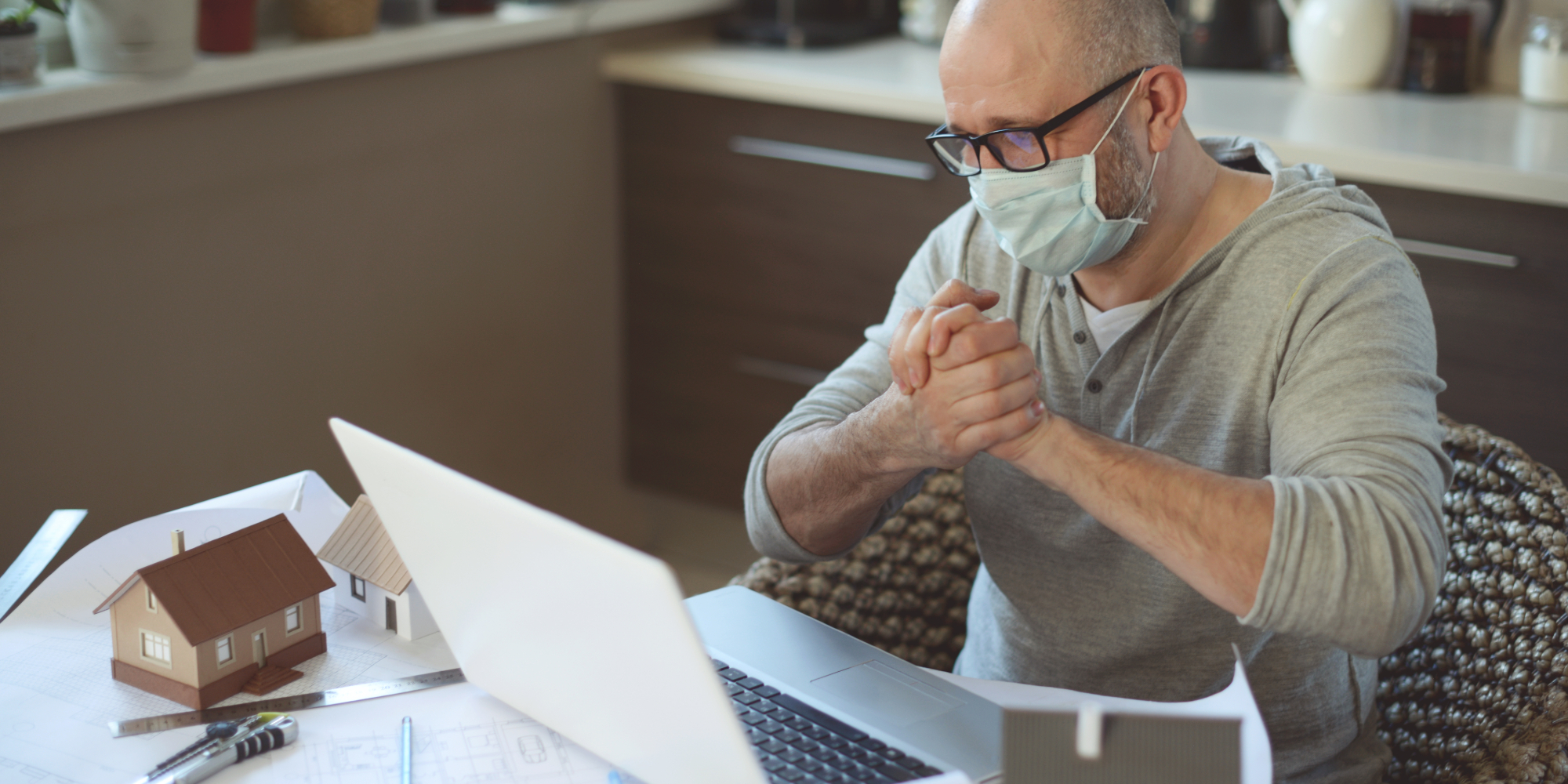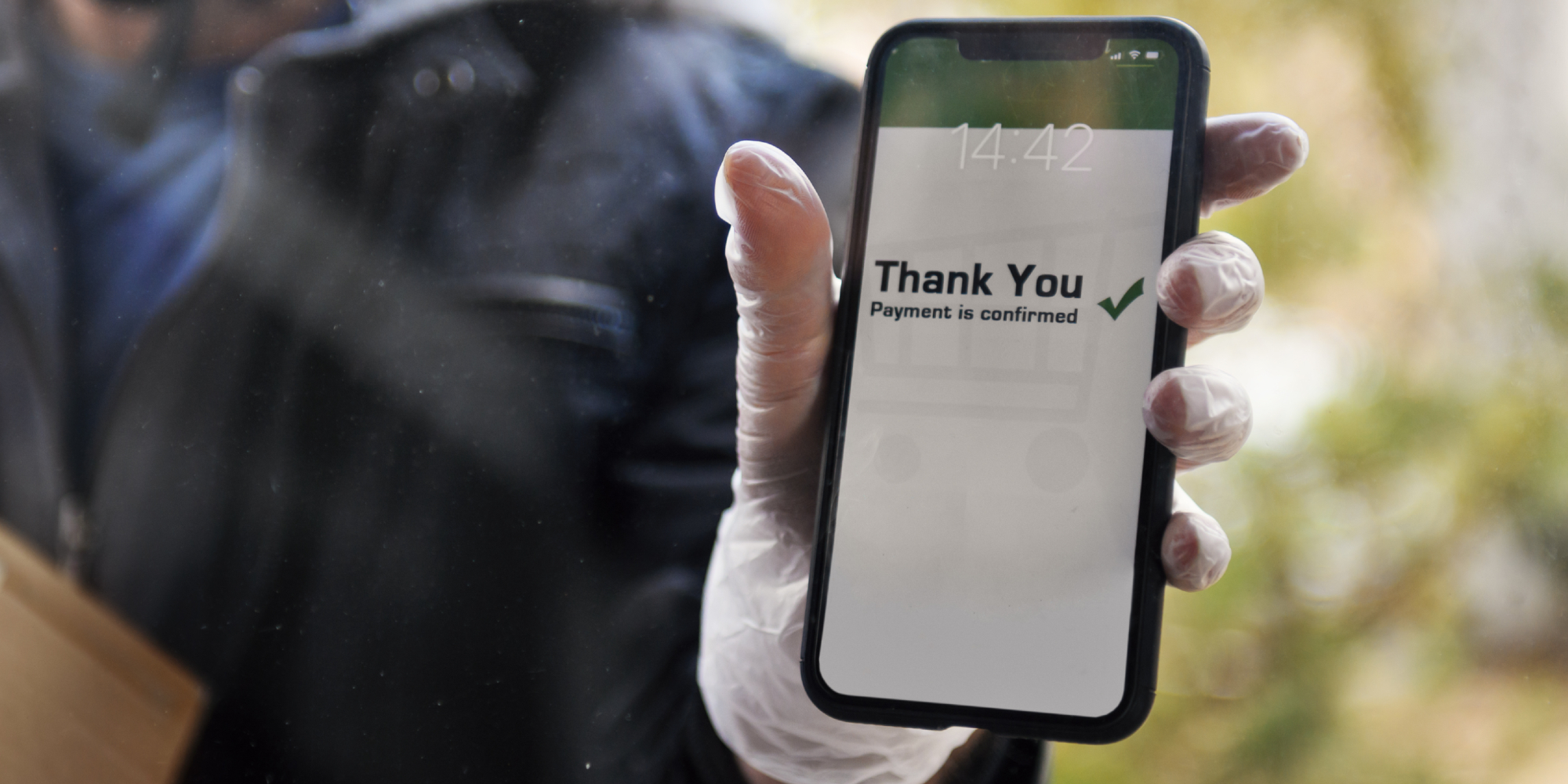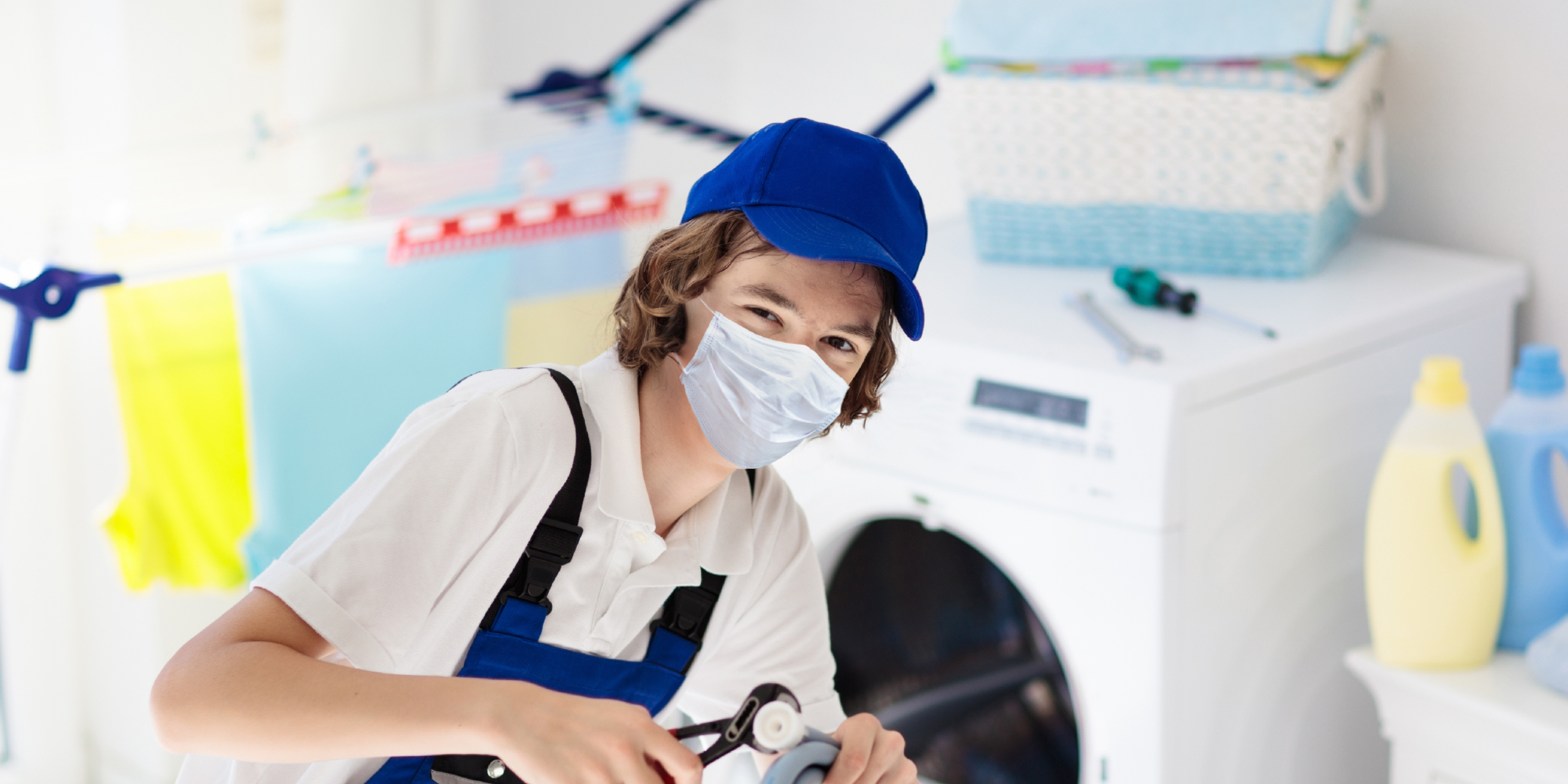Wolseley PRO Pipeline Blog
Contractors in the HVAC and plumbing industries are part of the designated essential workers that have been working throughout the past few months, even if it was at a lower volume than normal. But as restrictions loosen and things start picking up even more, you’ll find your phone ringing with everything from the frantic, “Help, this is broken!” calls, to the typical repair or replacement calls. You may also get more calls for larger renovations and home or backyard upgrade projects as more customers are working from home and forgoing summer vacation plans.
So how can you keep yourself and your residential customers safe when you make home visits while COVID-19 is still a concern? Well, it comes down to a lot of planning, preparation and a bit of confidence in your business.
Pre-Visits and Answering Their Calls

Before going to a residential job, your safety and your customer’s safety actually begins in the pre-visit phone call or virtual consultation stage. Take calls from your customers as usual and see what they need. Once you know what their request is, it is important to ask them some new screening questions. For example, ask if:
- They have travelled outside of province in the past 14 days
- They have had any symptoms of COVID-19 in the past 14 days
- They have been in contact with someone who has tested positive for COVID-19
- If anyone in their residence has symptoms of COVID-19
If you have the slightest inclination that they may not be fully honest in their answer, do not feel obliged to make that house visit. But assuming they are honest and are taking this as seriously as you are, you can book the appointment with them.
Decide On The Visits and Work You’ll Take On
Keep in mind, you have the option to decline any work that you are not comfortable taking on. If it is because a customer has COVID-19 symptoms, you are protected by the federal rights to refuse dangerous work, even if you are an employee of an HVAC or plumbing business and your boss is requesting you to take on the work.
If you run your own contracting business, you may be able to have more flexibility than those who are not self-employed. For example, you may also choose to only take on more urgent calls right now if you are still trying to minimize your exposure. Maybe you’ll choose to only take on the urgent furnace repairs as opposed to calls where a customer needs your opinion on something in their home.
Everything comes down to your judgement and how your province/territory is handling work and safety.
Talking to Your Residential Customers about COVID-19 Protocols
Like other business owners, plumbers, HVAC technicians and contractors are now working under new protocols whether at a jobsite or making residential visits. These new ways of working are new to you, and they are most certainly new to your customers so it’s important to communicate it.
Before you end the initial contact call with your customer you can come up with a little script to communicate how you’re handling work. For example, you can say something like:
I’m letting all my customers know that I am taking COVID-19 seriously and have additional protocols I will work under to keep myself and anyone in your home safe as well. Before I step into your home, I will be sanitizing, putting on a new mask, and a new pair of gloves.
As I work, I’ll be wearing additional personal protective equipment, sanitizing any surfaces I’ve touched with disinfectant, and offering you an option for contactless payment.
It’s also a good idea to let them know they can ask you any questions around your protocols and you will be happy to answer them.
How To Keep Yourself and Your Customers Safe During The Pandemic
Prepare Yourself and Your Customer

No one likes to be caught off guard, so it’s a good idea to prepare yourself and your customer. When you arrive at a customer’s home, let them see you putting on a new mask or face shield, as well as sanitizing your hands and putting on your protective gear. It builds extra trust in your service. You can do this as you arrive on their doorstep (or in a hallway of a shared unit) and get them to keep a safe distance from you.
You can also ask your customer in advance to clear some space in the area you’ll need to work in to minimize the amount of furniture or items you need to move around. This also makes your job a little bit faster so you can reduce the time spent inside their home. Lastly, prepare your customer by asking them to give you the 6ft of space you need as a minimum or suggest they remain in another part of their residence while you do your work.
Wear the Right Gear

As mentioned, masks are important with or without COVID-19. While N95 masks and latex gloves are fairly common for you to wear on a jobsite, you may also opt to wear a face shield, especially if you are doing plumbing work with more risk for droplets splash on you.
Also, make sure you’re carrying spare masks and gloves in your toolbox in case you damage the ones you are wearing. Check out this post to see what tools and hygiene items you should keep in your toolbox.
Respect Your Customer’s Home
As much as you are taking a risk going into a customer’s home, they are also taking a risk letting you in, so it’s important to respect the space. Before you get there, make sure you are prepared with all the tools and fixtures to get the job done in one visit and as efficiently as possible.
To minimize your exposure in their home, you may also want to wear shoe covers as a courtesy. Also, make sure you keep disinfectant in your toolbox so you can wipe down the items in their home you have touched. Don’t forget to bring in a garbage bag so you can dispose of your wipes in a safe way!
Offer Contactless Payment or E-Transfers

Much like retail stores, a lot of service-based industries are offering contactless or mobile payment options. If you would like to do the same, you can easily email your customer their invoice. Then you can either:
- Offer a form of contactless payment through a mobile-point-of-sale method, like with a debit/credit terminal
- Make use a square reader for debit/credit payment that attaches to a mobile phone
- Give them your email so they can e-Transfer you the invoiced amount
If you have a website for your business, you can also set up a payment portal where customers can pay online. Any of these options are a great way to reduce the human-to-human interaction, but also help you to be eco-friendly with your business operations.
Provide Alternatives To Making Residential Visits
If you don’t feel safe, or if your customer isn’t ready for home visits yet, you may be able to work in an alternative way. Depending on your level of tech-savviness and your customers’ level of tech-savviness, you can offer virtual consultations and walk-throughs with customers.
Of course, this doesn’t replace a residential visit if its a more serious issue, like a broken furnace or a toilet that doesn’t flush, but it can be a good start in knowing what the issue is, what materials you may need if you do need to go in to fix it, or if it’s something easy the customer can fix themselves.
Be Confident and Honest With Every Residential Visit
Some of your customers may have additional questions or concerns about how you’re handling your house-calls...And that’s completely normal given the uncertainty of the times. They’re trusting in your judgement and knowledge so it’s a great opportunity to show it.
When you’re answering their questions, be confident and honest in your answers to build a good rapport with them and open the doors for repeat work. Once you’ve had a few calls from various customers, you may notice a couple of trends in the questions, so it gives you a chance to prepare some answers for future calls.
As safety and protocols change frequently, make sure you’re staying up to date with federal, provincial or territorial news, and updated safety measures from the suppliers you shop at. You can check the Wolseley COVID Information Page to learn about our protocols and what we’re doing to help keep you safe in our branches.
To ensure you’re getting the latest news and product information from us, sign up to become a Wolseley PRO. You’ll get tips, business info and more straight to your inbox.







